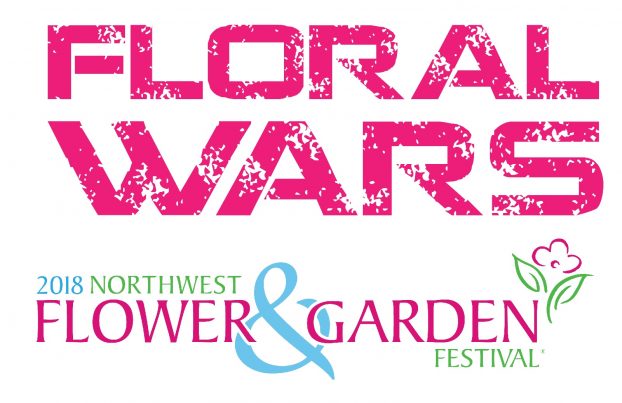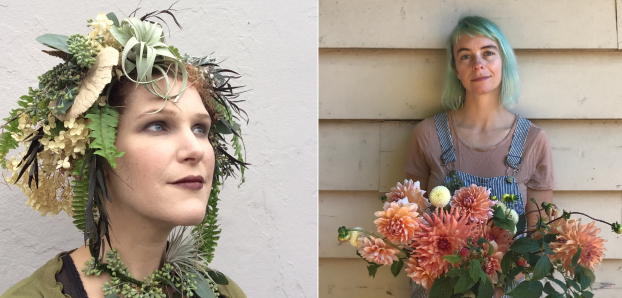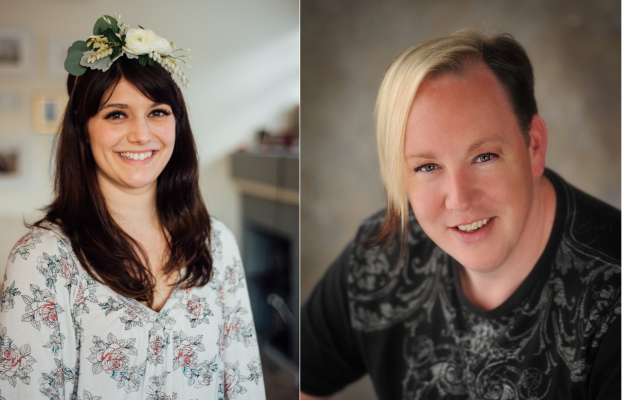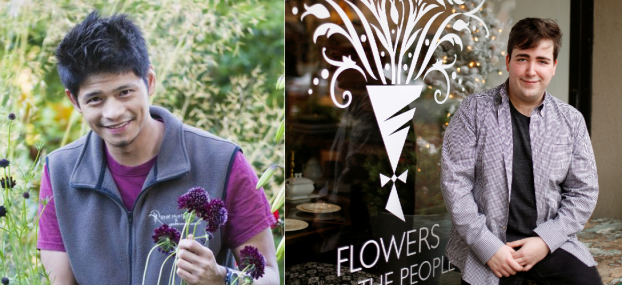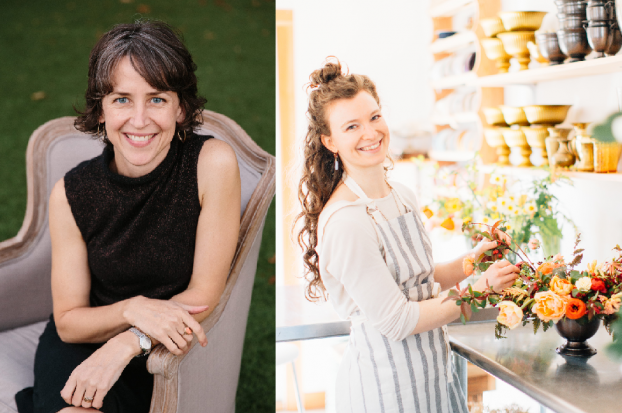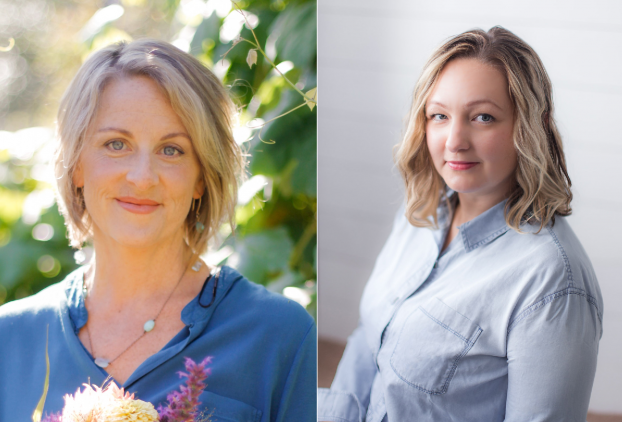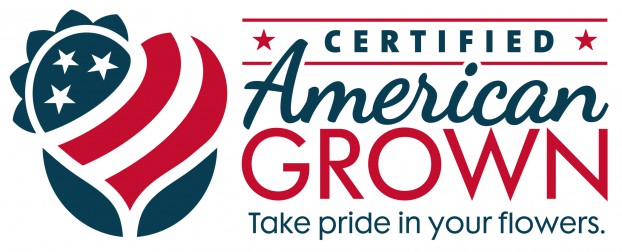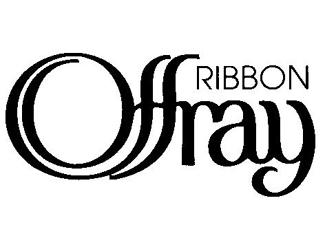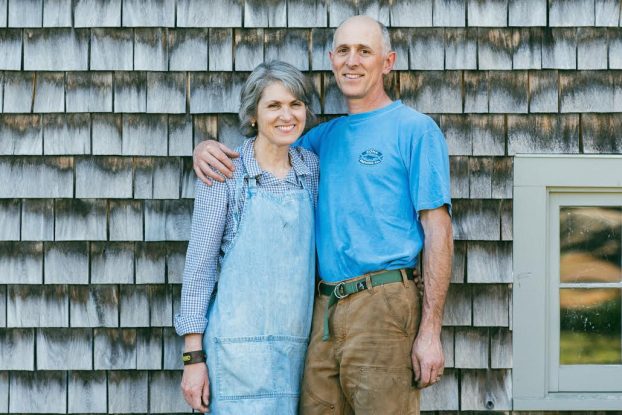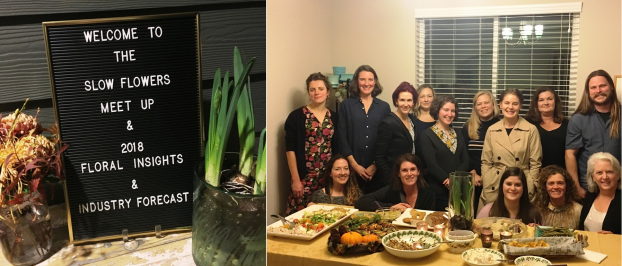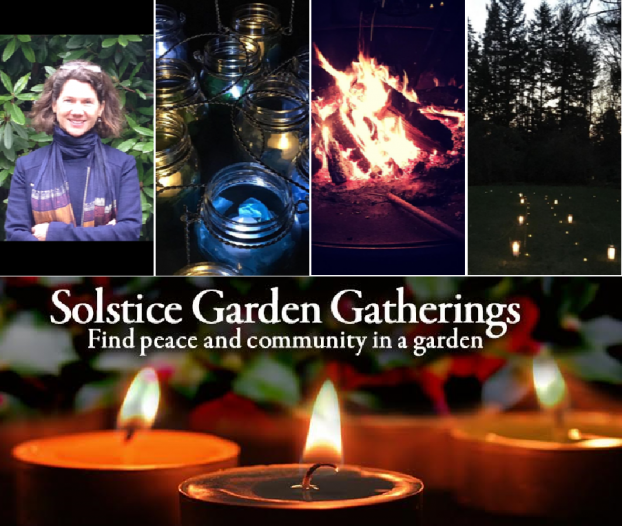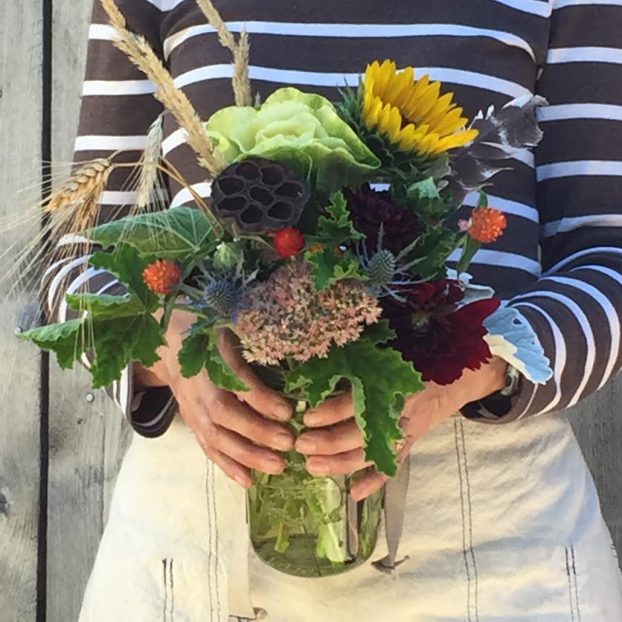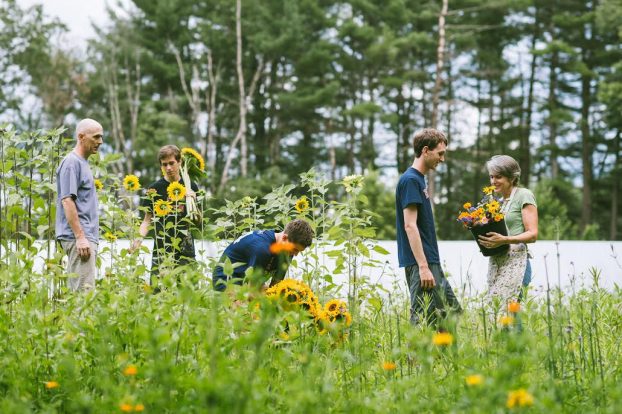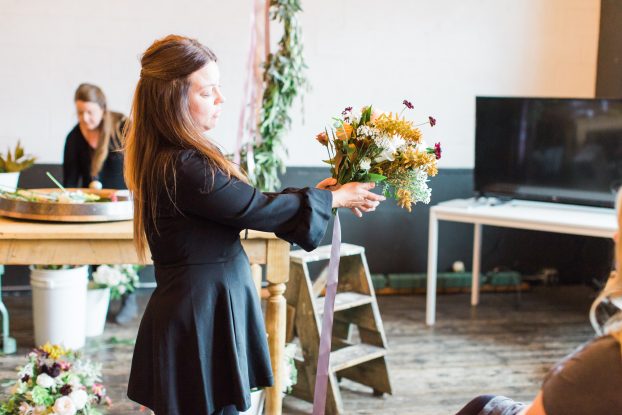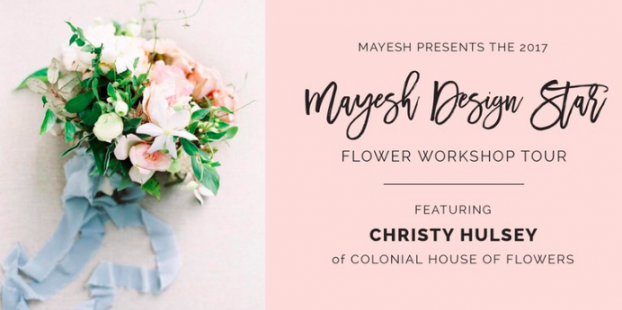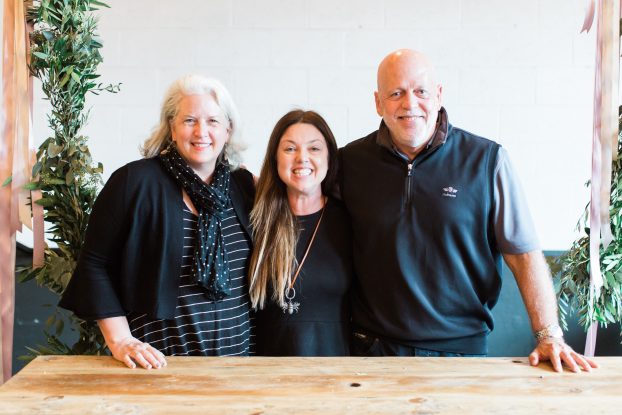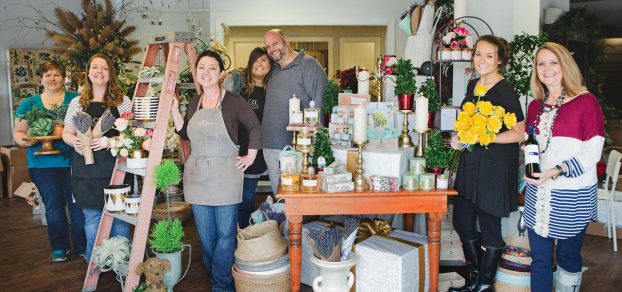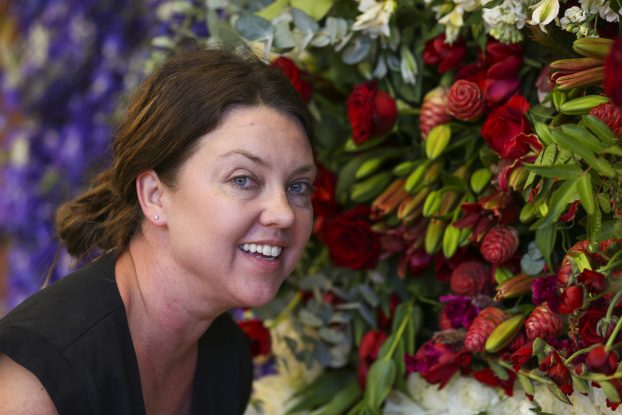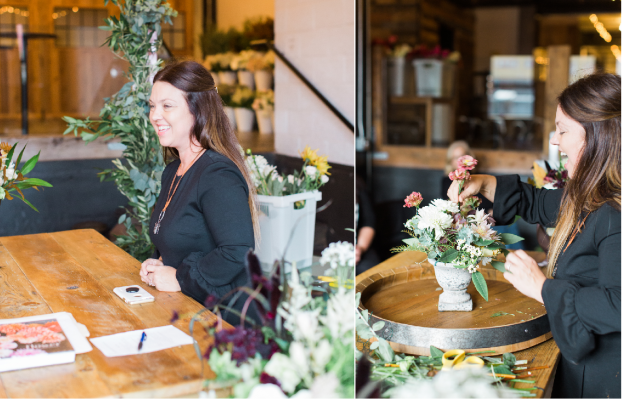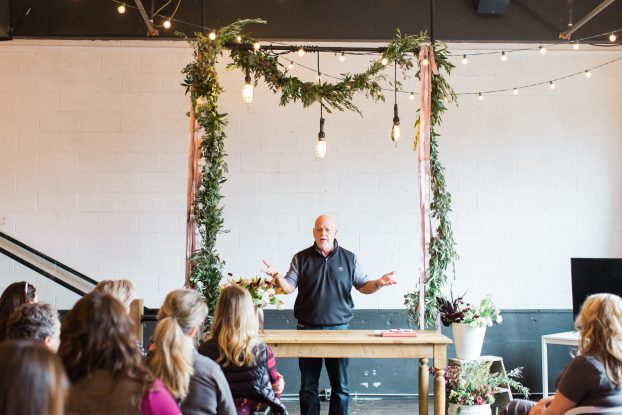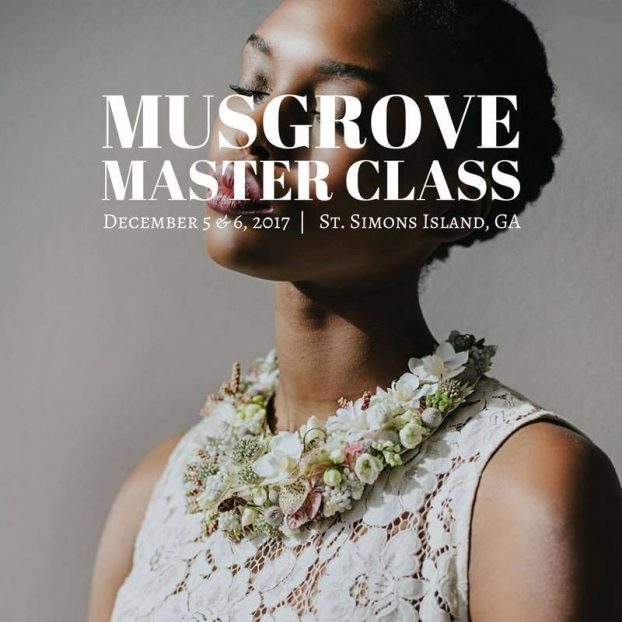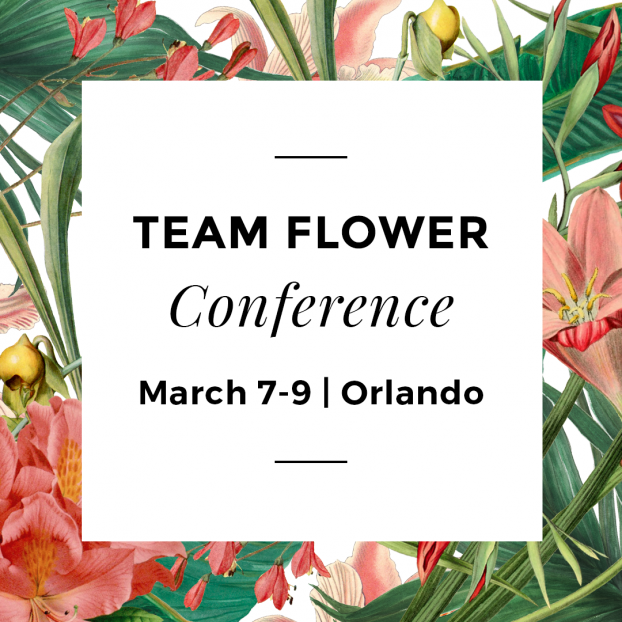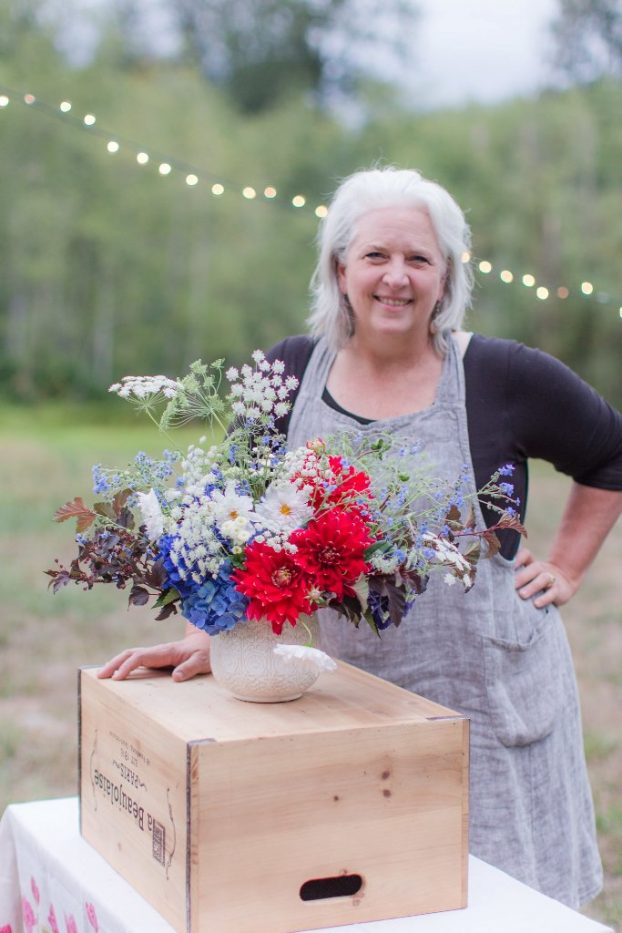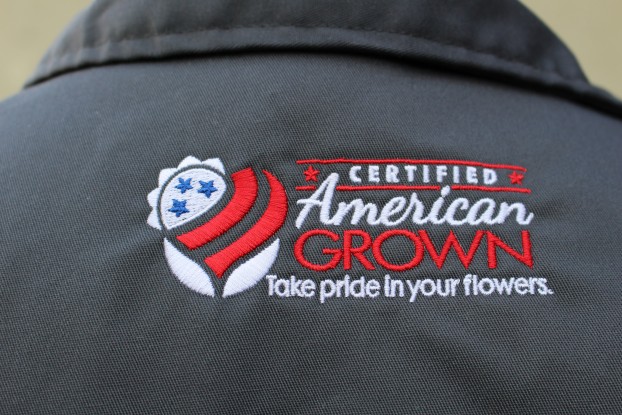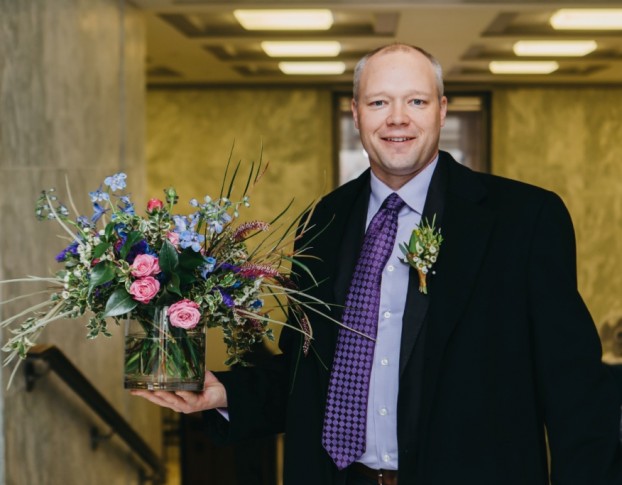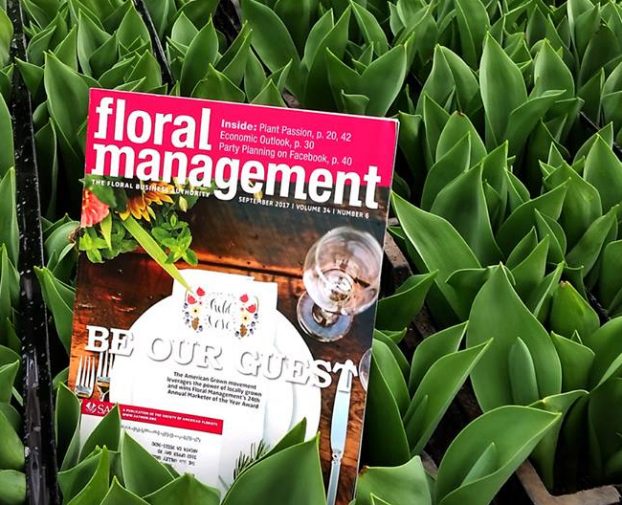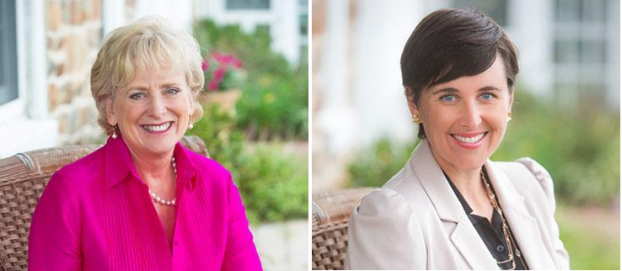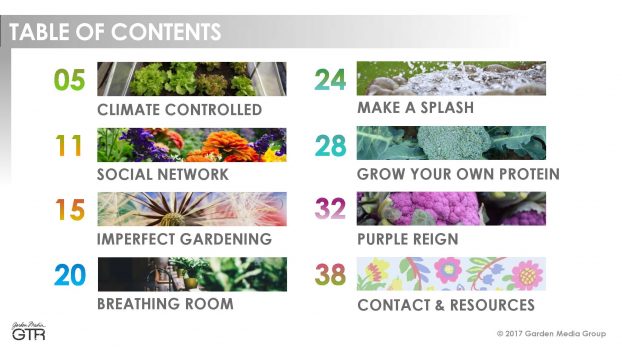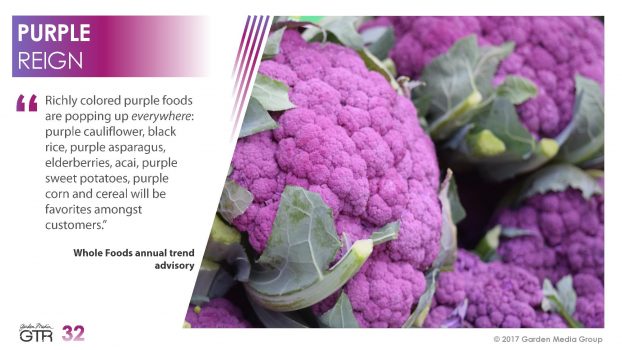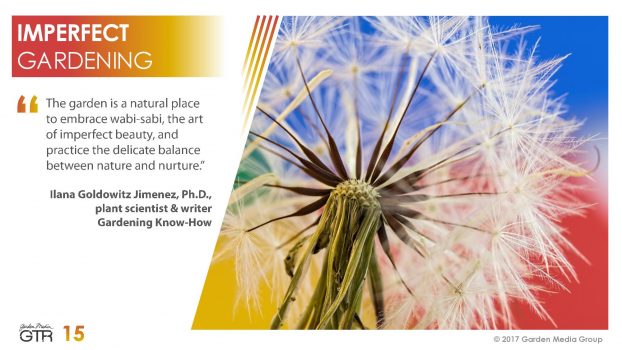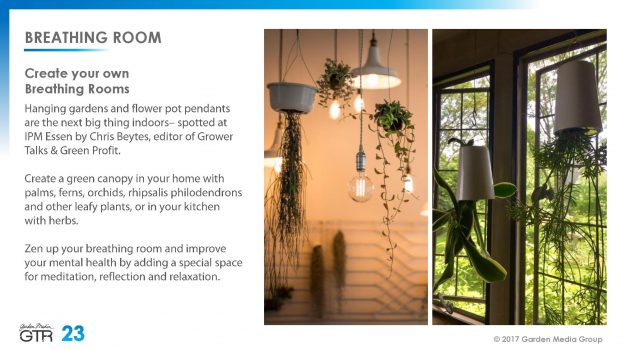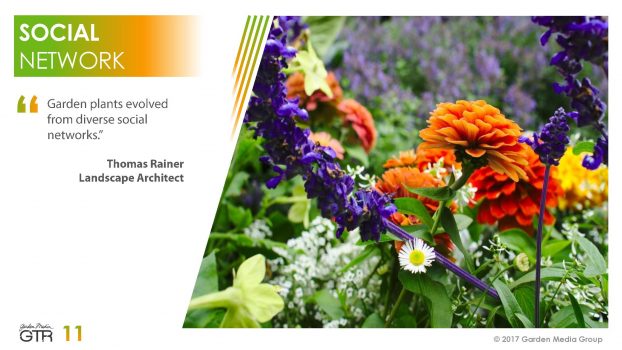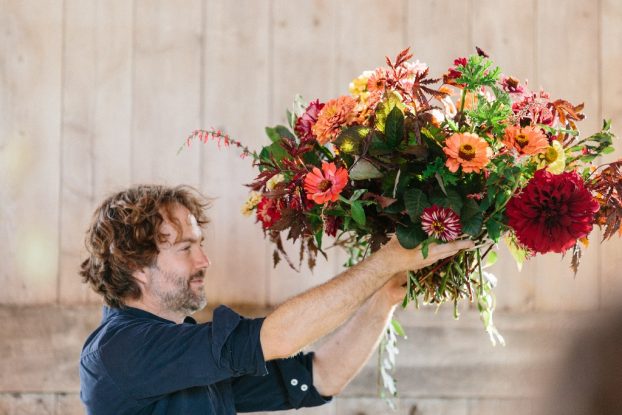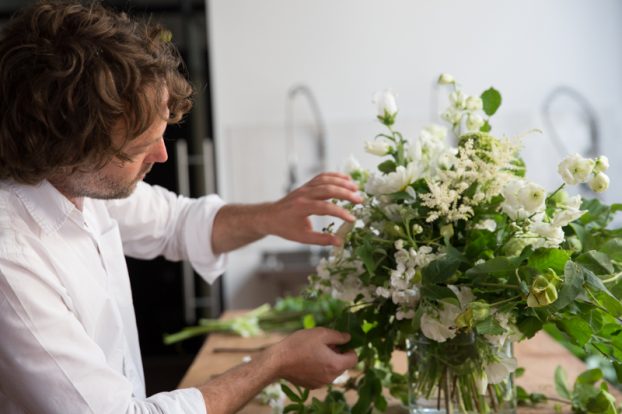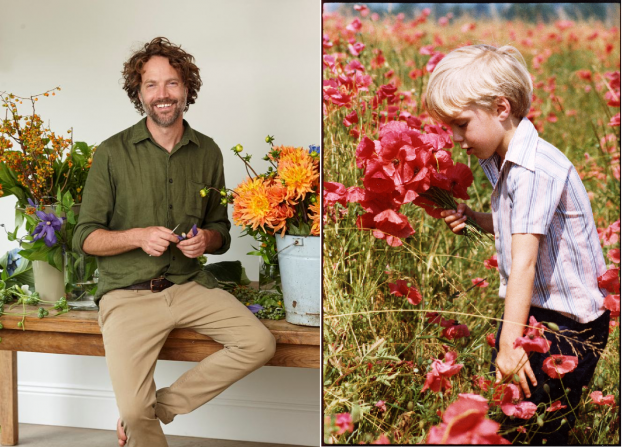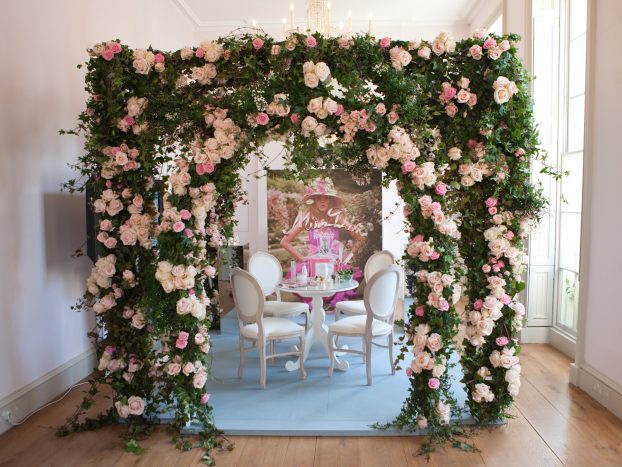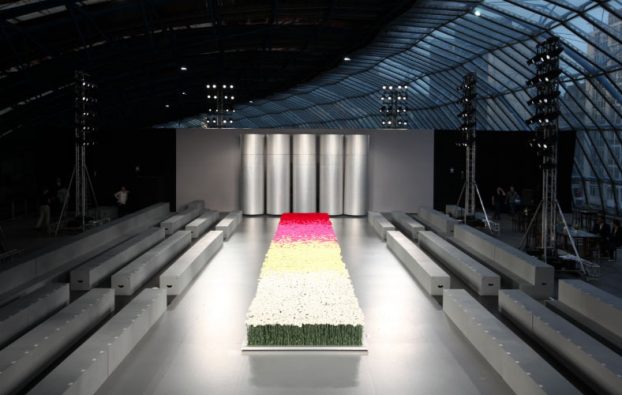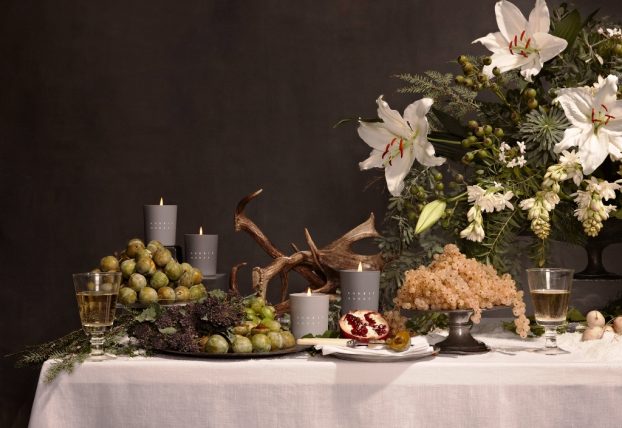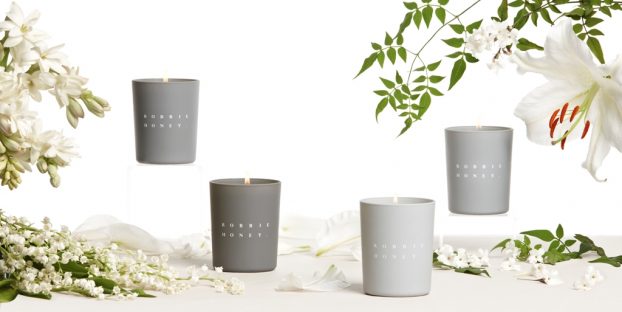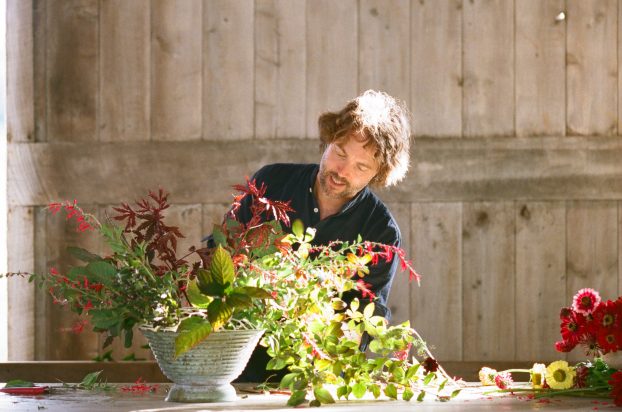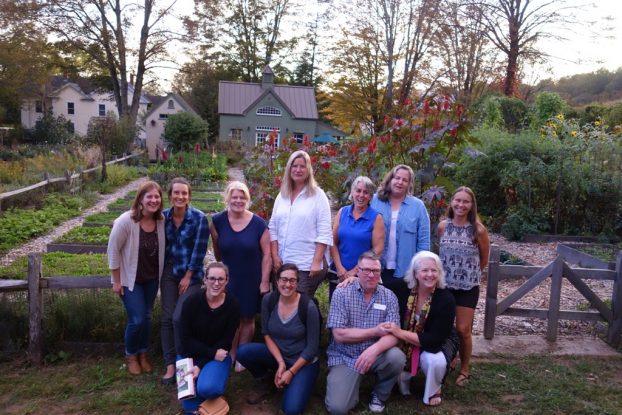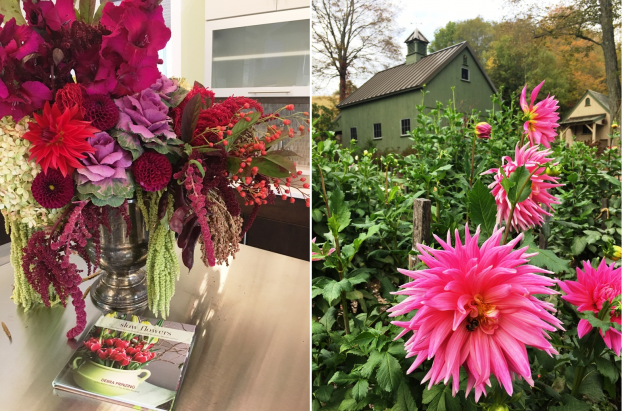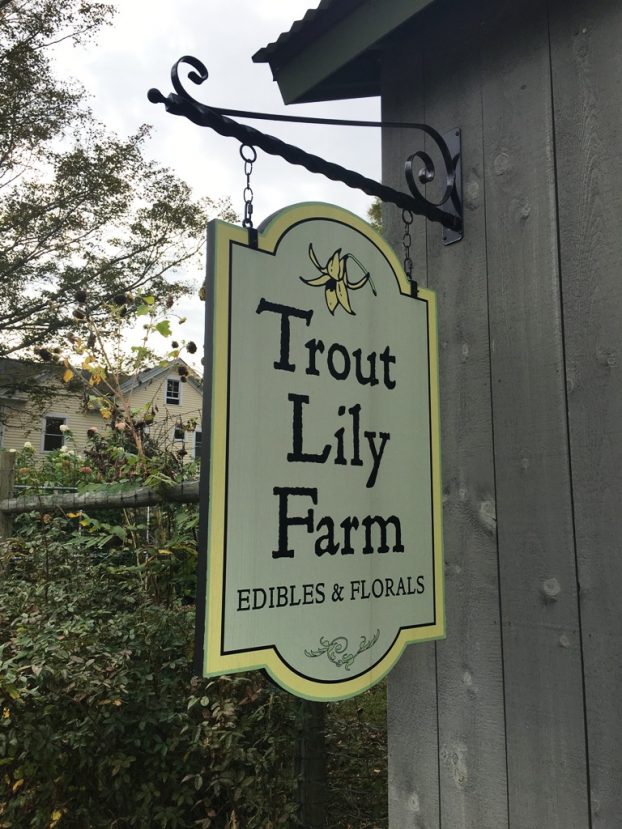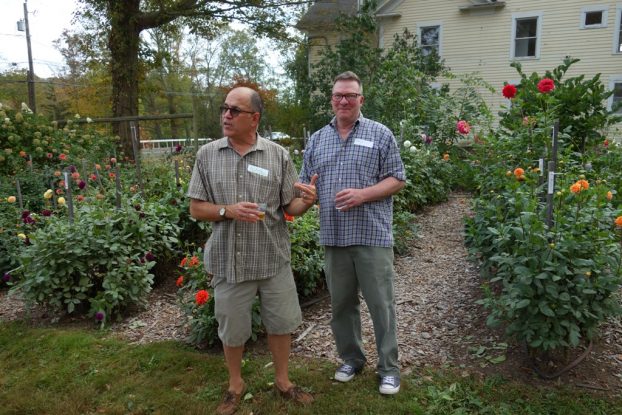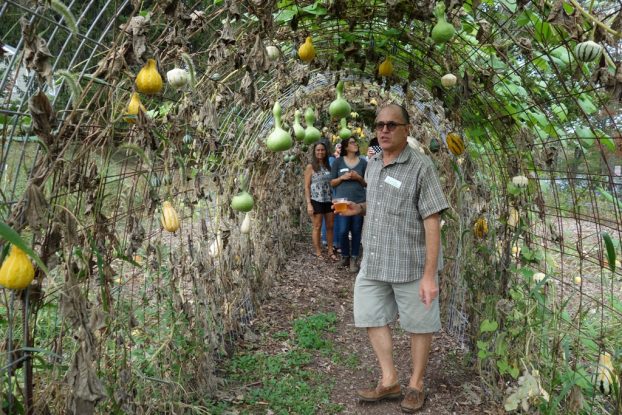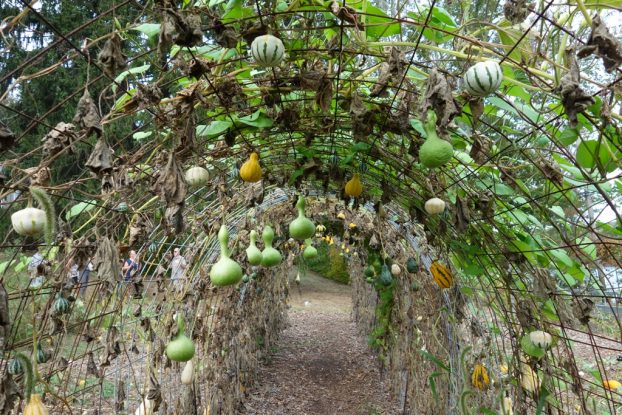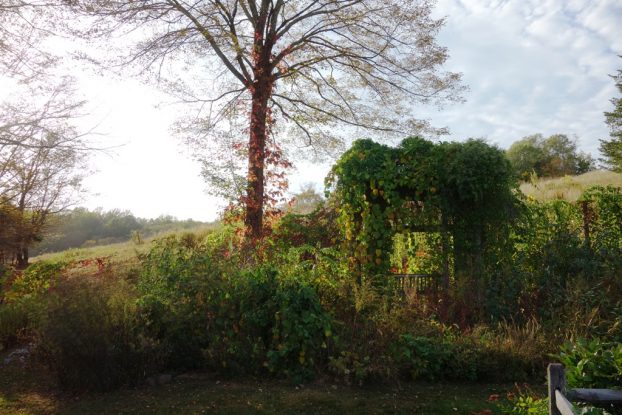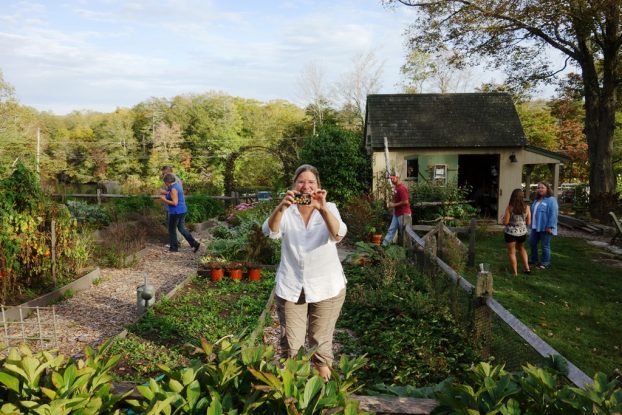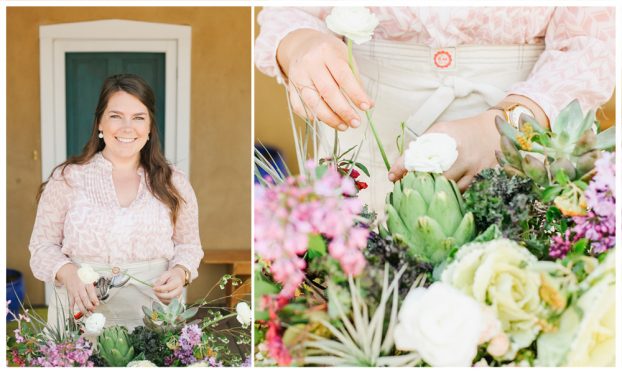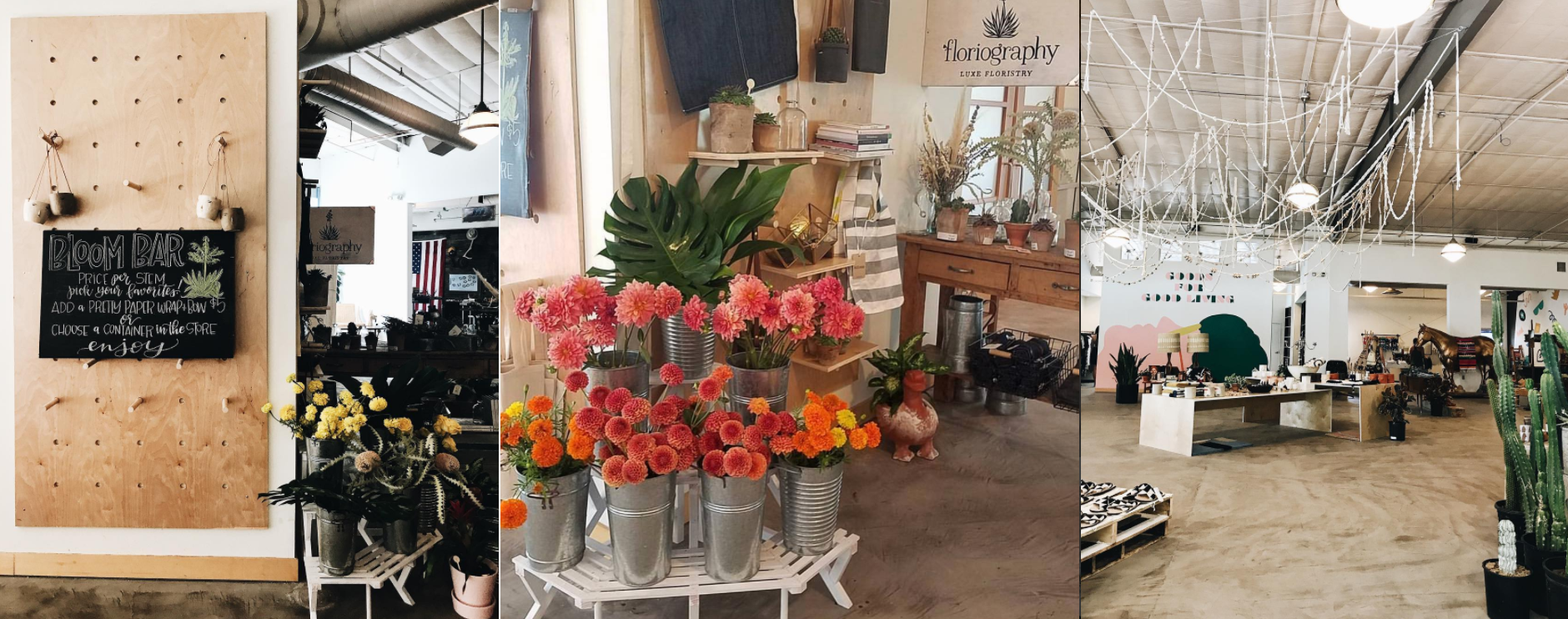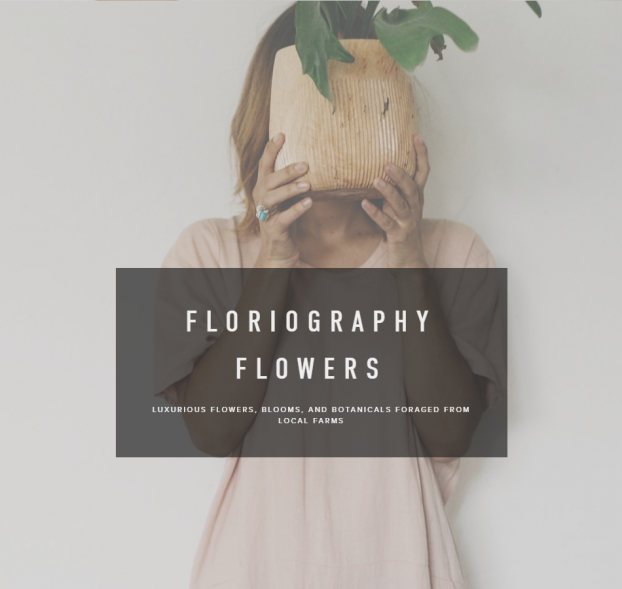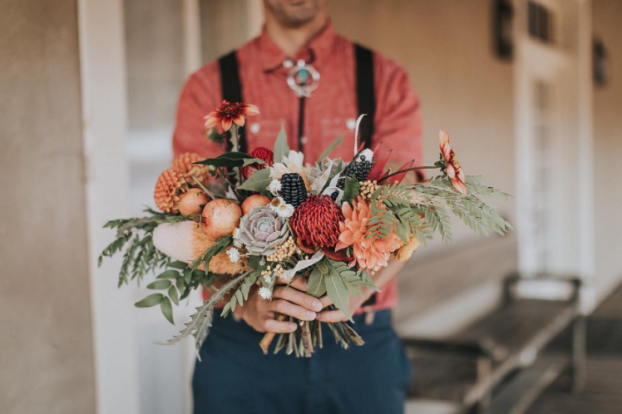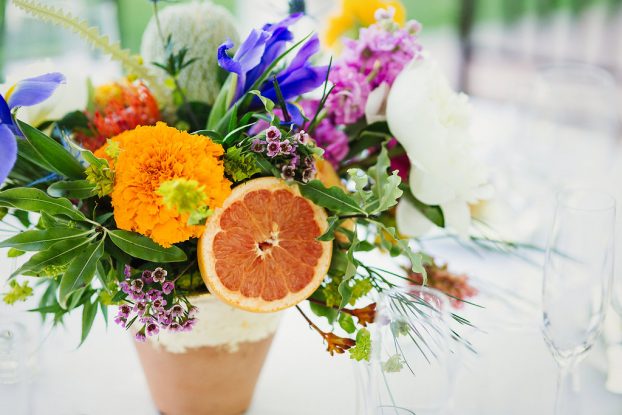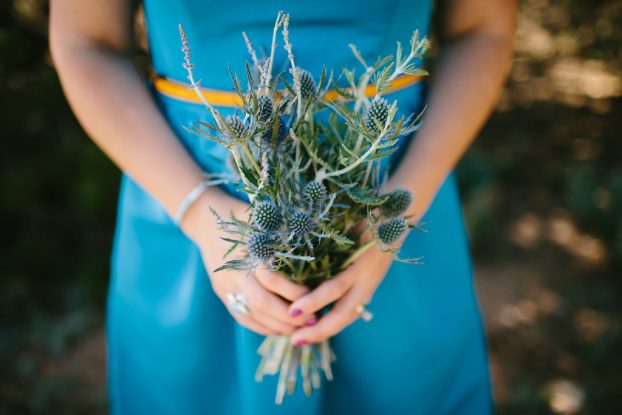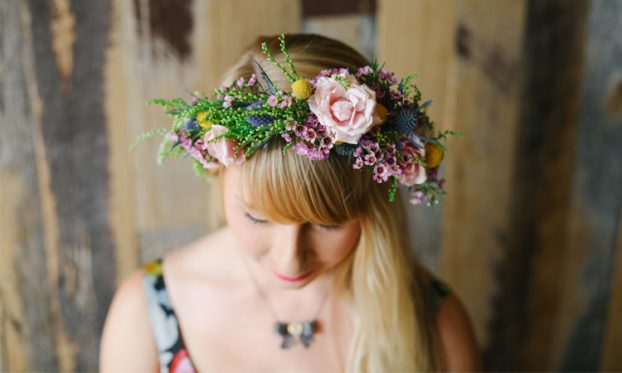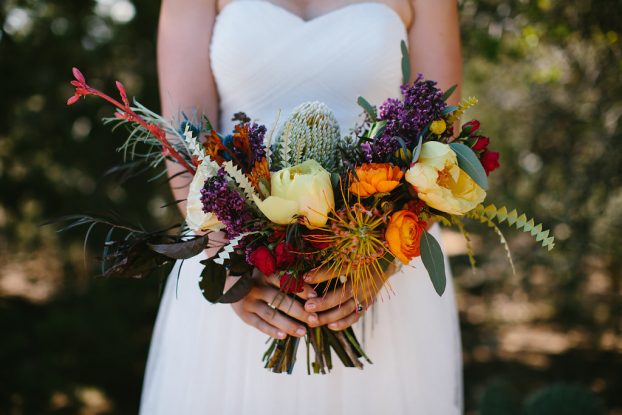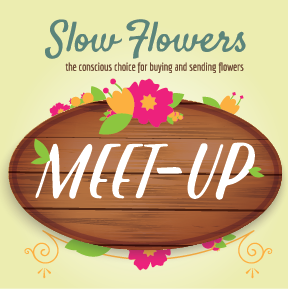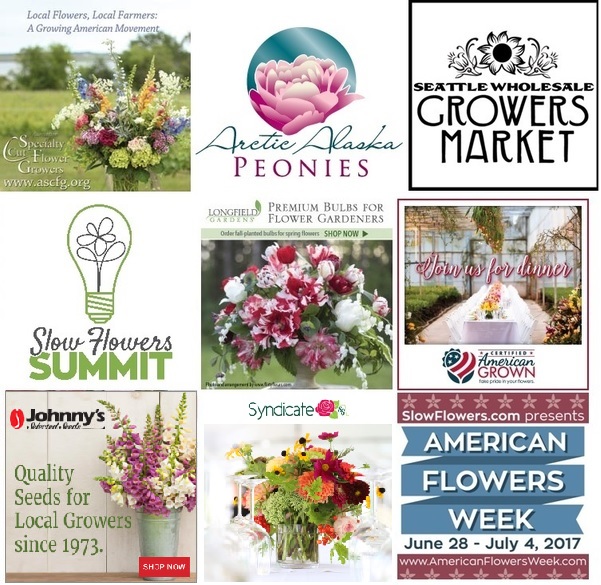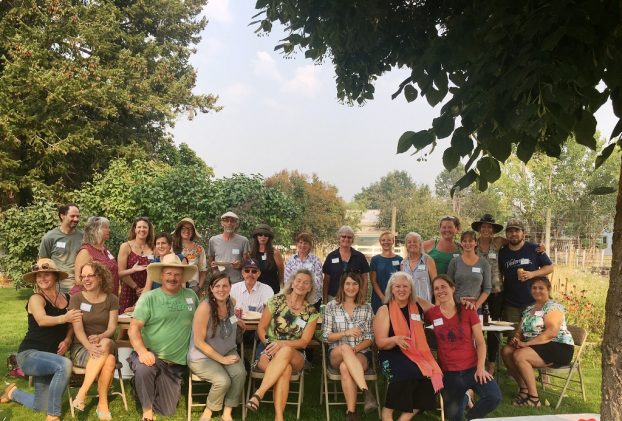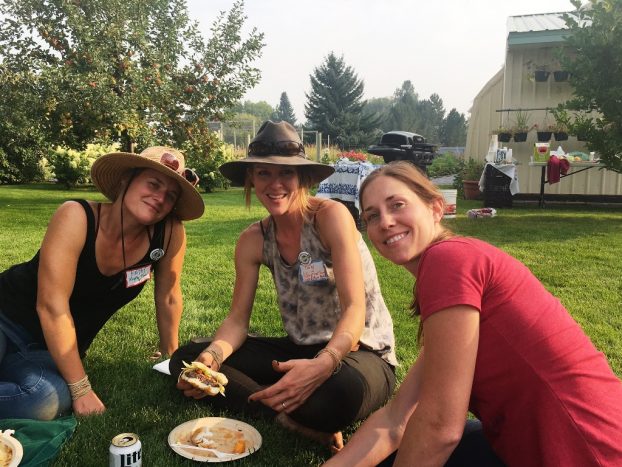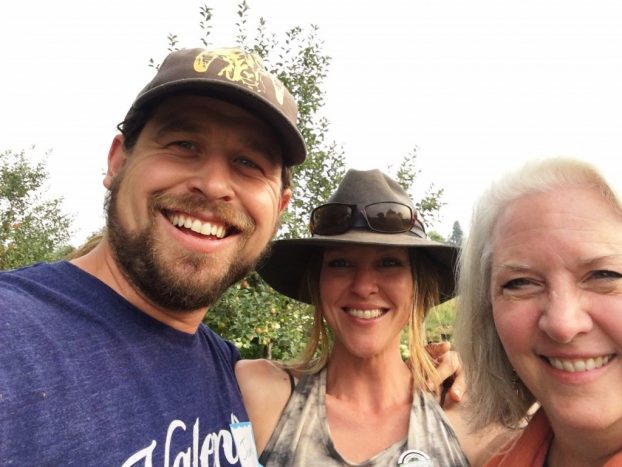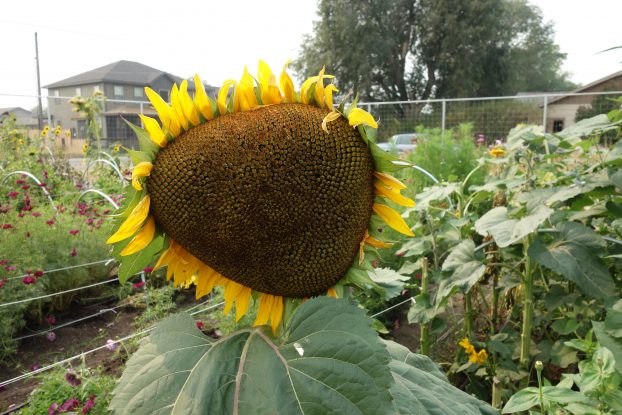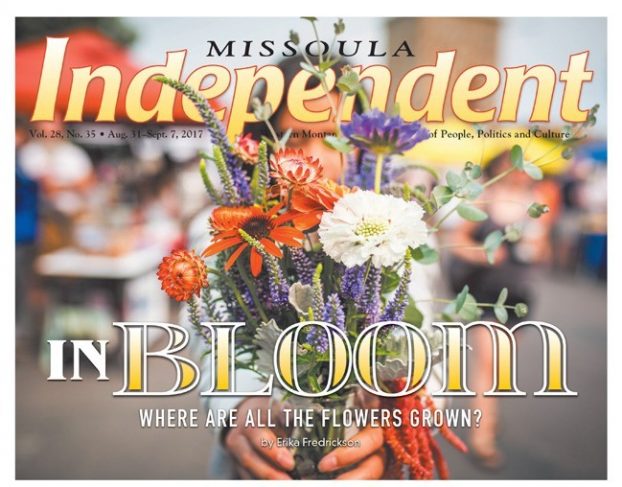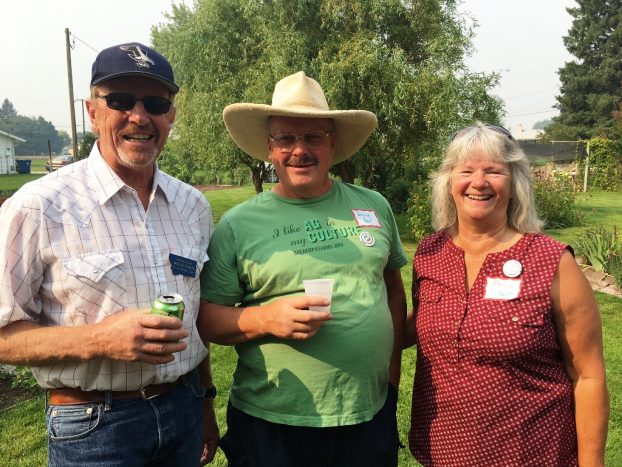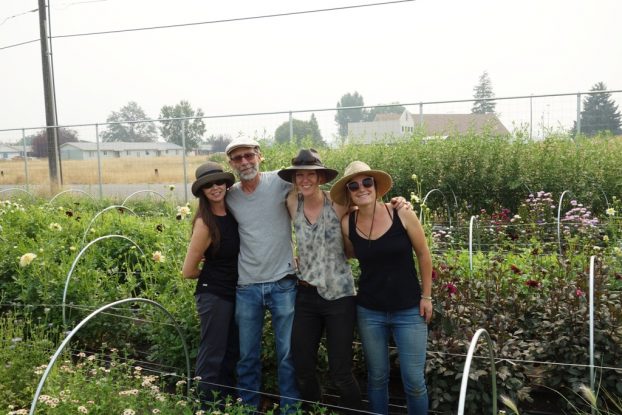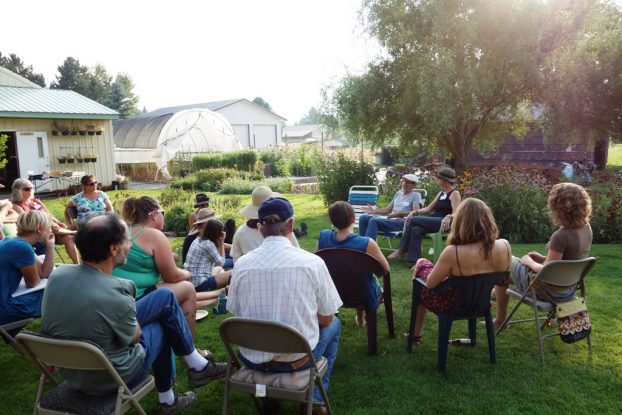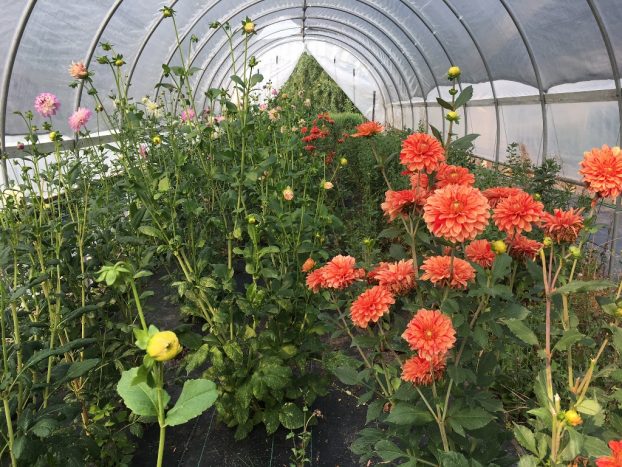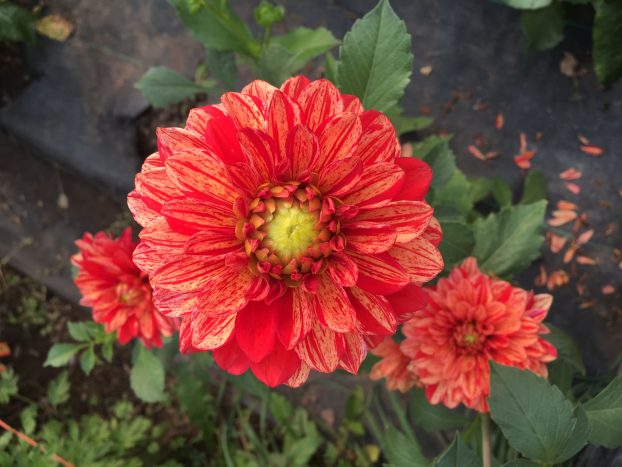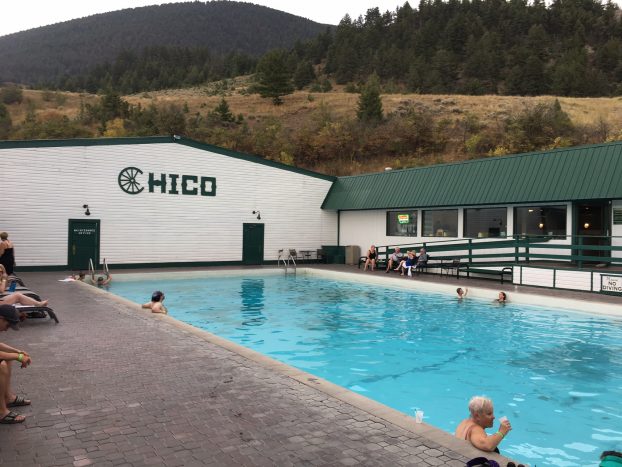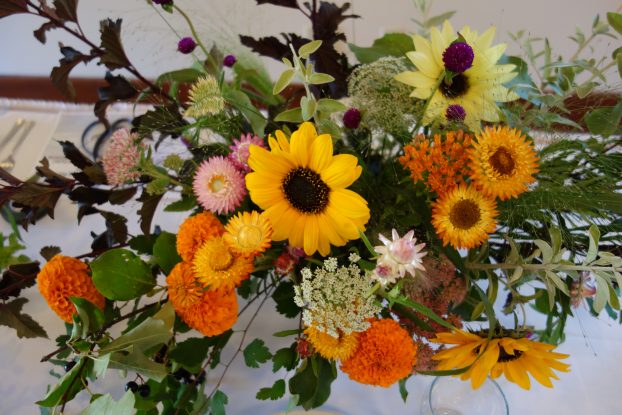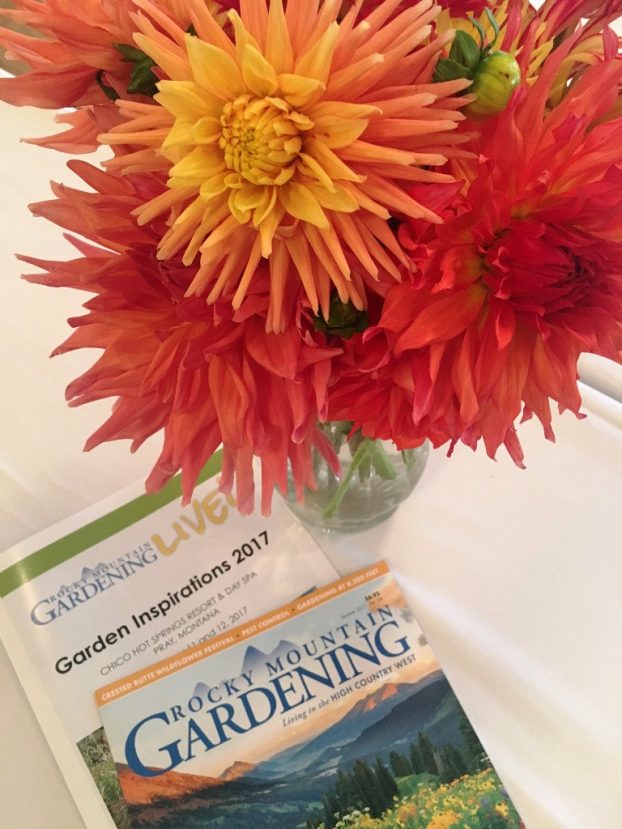Podcast: Play in new window | Download
Subscribe: Apple Podcasts | Google Podcasts | Podcast Index | RSS | More
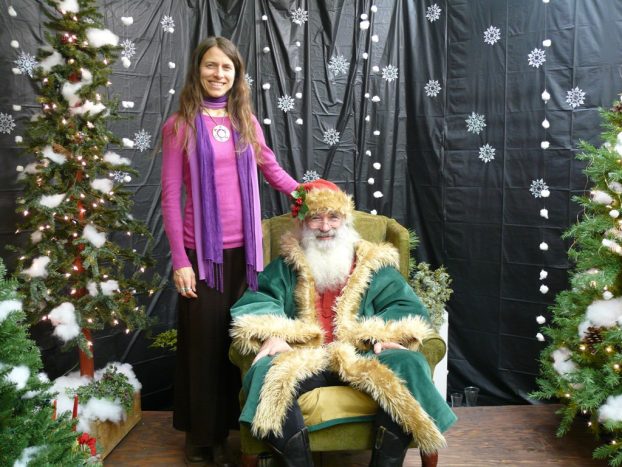
Today’s special guests: Kris and Scott Prinzing of EarthShine. This photo is from a recent “Father Christmas” event in Billings, Montana
For the past two years, I’ve shared special Holiday Music episodes, which seems festive and fitting for this season when we all need a break from work and responsibilities.
In 2015, musician-songwriter-flower farmer Dennis Westphall of Jello Mold Farm in Mt. Vernon, Washington, was my guest for Episode 225.
And in 2016, Ellen Zachos, vocalist, author, former Broadway singer-dancer, and foraged cocktails expert, sang botanical broadway show tunes for us on Episode 276.
Today, I’m delighted to present the third annual Slow Flowers’ Holiday Music Special, with EarthShine, the duo featuring Scott Prinzing and Kristen Rickels Prinzing, my brother and sister-in-law, who are based in Billings, Montana.
Scott and Kris and I met up this past September at the Rocky Mountain Gardening Live Conference, produced by Dan and Andra Spurr at Chico Hot Springs in Pray, Montana. It was so much fun for me to spend an extended bit of time with Scott and Kris, and I planned ahead and asked them to record this podcast in anticipation of our holiday special.
 Here’s a little more about this dynamic couple:
Here’s a little more about this dynamic couple:
Kris is a songwriter and player of acoustic guitar and flute! She grew up spending every summer in the Beartooth Mountains of south central Montana and spent school years in Minnesota. She has roots connecting her to Montana that date back to her great uncle Kent Moats’ 1913 homestead. In the early 50’s, her then very young father purchased property in the mountains of southeastern Montana, and as a result Kris has spent every summer of her life at this special place. In 1990 she and Scott were married there, and a few years later they relocated to Montana permanently, joining Kris’s parents and other family. Montana’s wild and beautiful landscape is responsible for her intense passion for the environment, which has led her to professional, academic and volunteer work in conservation.
Kris has also nurtured a lifelong interest in music and the arts. During college, after several years of flute, voice, classical dance and some piano, Kris made an effort to pursue singing as a career. She recorded a demo tape and sang lead on some sessions for a local jazz producer. In 1990 Kris married Scott Prinzing, who is also a musician, though it was not until 1997 that they began to collaborate and pursue music together. In 1999 Kris began playing the guitar seriously, and soon after began to write songs.
Scott Prinzing sings and plays bass, mandolin and more. He was born in Connecticut, moving a number of times during his childhood, ending up in Portland, Oregon at age 11. Scott took up the acoustic guitar in 5th grade and then the bass guitar in 7th grade. He formed his first band in the 8th grade. At church, in school singing groups and in the bands he sang and played in, Scott developed a strong baritone voice. In 1982 and 1988 he played and sang on studio recordings with his band Glacier. Throughout high school and college, Scott played in a total of six different bands (some concurrently.) Over the years Scott has learned to play several other instruments competently but continues to concentrate on the bass guitar. During college Scott became involved peace and justice issues, multicultural student activities and political campaigns. Scott majored in Sociology/Cross-cultural Studies in the small private college where he began his education and had the opportunity to travel and study in Israel, the Philippines, Rome, Mexico and elsewhere. His interest in politics and social justice also gave new depth to his life-long interest in the environment.
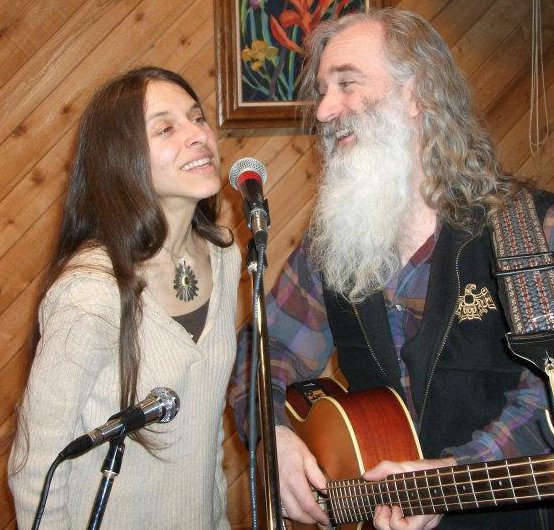 After marrying Kris Rickels in 1990, Scott transferred to the University of Minnesota to complete his college education and there chose to major in American Indian Studies – another life-long interest. In 1997, Scott and Kris finally began to work on music together, culminating in the collaborative efforts that have created the music they now perform together.
After marrying Kris Rickels in 1990, Scott transferred to the University of Minnesota to complete his college education and there chose to major in American Indian Studies – another life-long interest. In 1997, Scott and Kris finally began to work on music together, culminating in the collaborative efforts that have created the music they now perform together.
In 2003, Scott and Kris formed the MusEco Media and Education Project, an educational non-profit. They perform all around Billings and elsewhere in Montana with their duo, EarthShine, and they have produced three CDs featuring some of the music you’ll hear today.
I wish you a wonderful holiday, happy Solstice, Merry Christmas and Seasons Greetings — please enjoy my musical gift to you! Here are more ways you can listen and follow Scott and Kris:
See more GREEN MAN and MuseEco Videos here.
MusEco Media and Education Project: www.MusEco.org
Earthshine www.EarthshineMontana.com
Green Man’s site www.GreenManTV.org
Listen & Buy more of EarthShine’s Music:
 Thanks so much for joining us today! The Slow Flowers Podcast has been downloaded more than 264,000 times by listeners like you. Thank you to each one of you for downloading, listening, commenting and sharing. It means so much.
Thanks so much for joining us today! The Slow Flowers Podcast has been downloaded more than 264,000 times by listeners like you. Thank you to each one of you for downloading, listening, commenting and sharing. It means so much.
Next week, during the final episode of 2017, I will share our Year in Review. The Slow Flowers Movement and you, the community, have achieved and accomplished so much goodness this year and it’s time to celebrate our successes. Please Join me on Wednesday, December 27th for this special tribute to 2017.
If you value the content you receive each week, I invite you to show your thanks and support the Slow Flowers Podcast with a donation — the button can be found on our home page in the right column. Your contributions will help make it possible to transcribe future episodes of the Podcast.
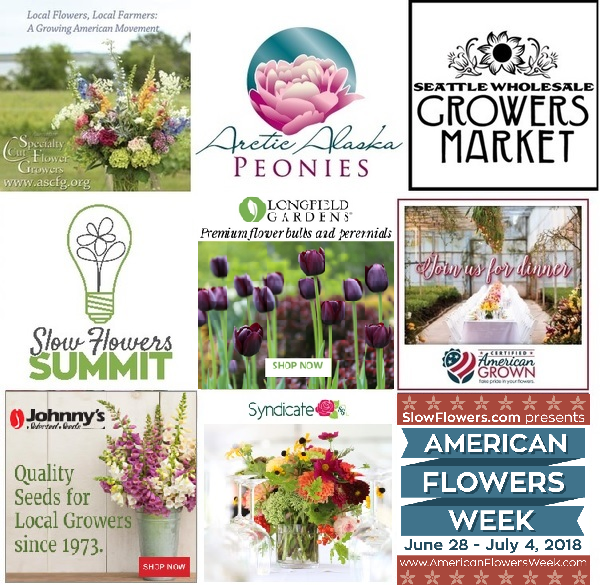 Thank you to family of sponsors:
Thank you to family of sponsors:
And thank you to our lead sponsor for 2017: Certified American Grown Flowers. The Certified American-Grown program and label provide a guarantee for designers and consumers on the source of their flowers. Take pride in your flowers and buy with confidence, ask for Certified American Grown Flowers. To learn more visit americangrownflowers.org.
Arctic Alaska Peonies, a cooperative of 50 family farms in the heart of Alaska providing high quality, American Grown peony flowers during the months of July and August. Visit them today at arcticalaskapeonies.com.
Seattle Wholesale Growers Market, a farmer-owned cooperative committed to providing the very best the Pacific Northwest has to offer in cut flowers, foliage and plants. The Growers Market’s mission is to foster a vibrant marketplace that sustains local flower farms and provides top-quality products and service to the local floral industry. Find them at seattlewholesalegrowersmarket.com.
Longfield Gardens provides home gardeners with high quality flower bulbs and perennials. Their online store offers plants for every region and every season, from tulips and daffodils to dahlias, caladiums and amaryllis. Visit them at longfield-gardens.com.
Syndicate Sales, an American manufacturer of vases and accessories for the professional florist. Look for the American Flag Icon to find Syndicate’s USA-made products and join the Syndicate Stars loyalty program at syndicatesales.com.
Johnny’s Selected Seeds, an employee-owned company that provides our industry the best flower, herb and vegetable seeds — supplied to farms large and small and even backyard cutting gardens like mine. Check them out at johnnysseeds.com.
Association of Specialty Cut Flower Growers. Formed in 1988, ASCFG was created to educate, unite, and support commercial cut flower growers. It mission is to help growers produce high-quality floral material, and to foster and promote the local availability of that product. Learn more at ascfg.org.
I’m Debra Prinzing, host and producer of the Slow Flowers Podcast. Next week, you’re invited to join me in putting more American grown flowers on the table, one vase at a time. And If you like what you hear, please consider logging onto Itunes and posting a listener review.
The content and opinions expressed here are either mine alone or those of my guests alone, independent of any podcast sponsor or other person, company or organization.
The Slow Flowers Podcast is engineered and edited by Andrew Brenlan. Learn more about his work at KineticTreeFitness.com.
Music Credits:
EarthShine:
(c) Season’s Greetings 2000
(c) Kubota Garden 2002
(c) Blooms of Clover 2007
(c) Whirling Earth 2014
(c) Jack in the Green 2015
Lovely, by Tryad
Music from:









